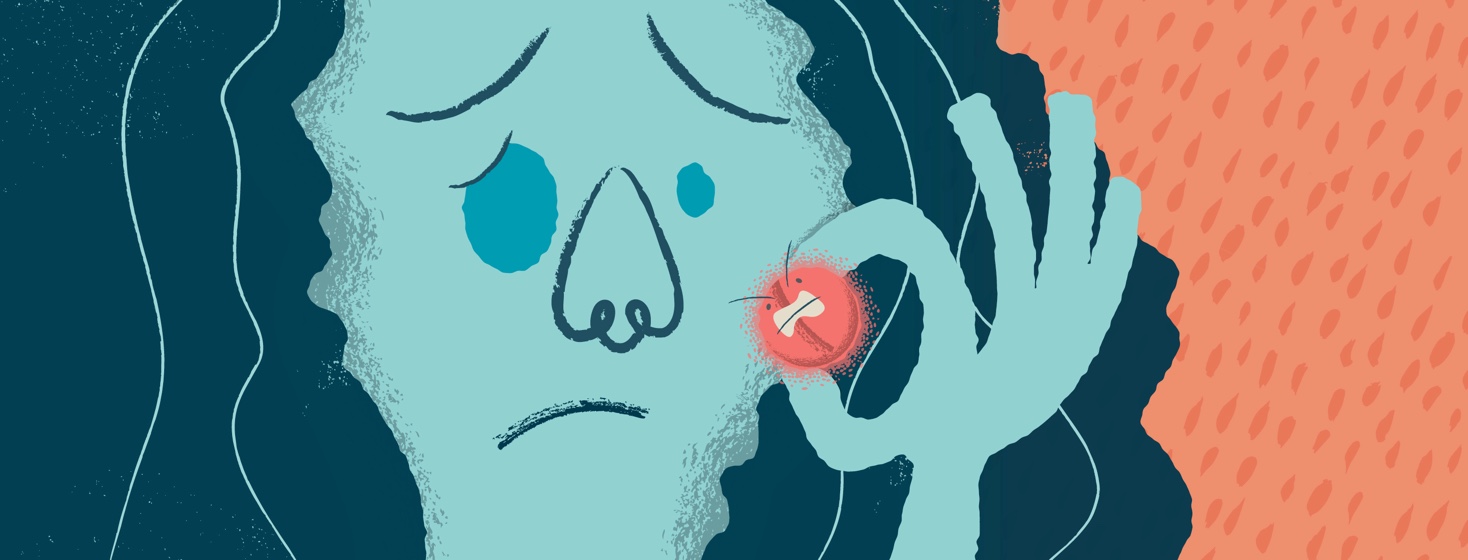Hard Pill to Swallow: Not Everyone Wants to Treat Their Psoriasis
Over the past few years, I’ve gotten the opportunity to speak at quite a few events. Every so often, someone who is not there as a patient but there as part of their work will pull me to the side and share their psoriasis or Crohn’s disease story with me.
Sharing anything with a stranger is a big deal
Whenever I’m approached by a member of the audience who chooses to share something about their personal health story, it’s a big deal. Autoimmune diseases, chronic illnesses, whatever term you use, come with the baggage of stigma. So, the first time I was approached, I probably came across a little too giddy about the share.
I wasn’t all, “Yay, you are sick too. Let’s be sick together!”
I was actually excited to meet someone who just “got it.” It was also my first time speaking at an engagement of this type. And I really wasn’t expecting anyone to want to talk to me. I figured, my presence was just part of some assembly these people were forced to attend. But that wasn’t the case. There’s something cathartic about meeting someone who gets it. And that probably helped this person approach me.
Learning as you go
Another thing I learned is that just because this person is sharing their story with you, they may have several hang-ups and this was a toe dip in the pond of opening up. What I mean by this is, they may hold their chronic condition close to their heart. And even their closest of friends or family members may not be aware of its existence on or in their body. They may not be on a medical treatment. And lastly, they may have considered seeking medicinal treatment but do not consider their chronic illness as serious.
That last scenario is the hardest one for me, even being four years deep into public speaking and getting face time with fellow chronic illness patients.
If someone were to tell me, “Show me yours…” I couldn't. Aside from a tiny patch at the back of my head that is hidden beneath my hair, there's nothing visible-to-the-eye to show. I’ve been lucky enough to be on a treatment that works for my body. I can show them the manifestations left over from untreated disease. But they may not be ready for that reality. Not everyone is open to going on a medication to treat their psoriasis. It breaks my heart, but I learned this the hard way.
But it’s just psoriasis
Last winter, I attended a think tank for a foundation close to my heart. While on a break, someone from the tech company hosting the think tank approached me. She was there to help facilitate our progress on the project at hand, but some of the items discussed hit close to home for her. She lifted her sleeve and showed me her arms.
We discussed how long she was living with psoriasis, how she handles if people at work or while out react if she rolls up her sleeves or goes sleeveless to work. “It’s winter, so it is a little easier to hide here.”
But this is where I feel I messed up. I asked her if she had tried any treatments yet; she already knew what I was on from listening to the presentation. Her posture changed. I felt her entire demeanor shifted from that point on, and I lost her.
I internally cringed as she explained her preference toward creams and homeopathic suggestions from the Internet, but hopefully, my face didn't show. Then she mentioned how she's experimented with some diet changes. I asked if she felt they helped. She replied, "No." And then with a shrug added… "But it’s just psoriasis."
“Just Psoriasis?!” I squeaked out and then went into a mini science lesson.
All aboard the S.S. fail whale
First off, don’t do what I did. You’ll be setting sail on the S.S. Fail Whale shortly after that. Gang, I wanted to cry. To me, it’s like saying, “It’s just sunshine. If sunshine came from a giant flaming ball of gas in the sky that could potentially eviscerate the planet.”
I feel this way about inflammatory autoimmune diseases, like the two I have, for a very good reason. Crohn’s disease and psoriasis are systemic and I am super passionate about people finding the right doctor for them, as well as the right treatment for them.
I encountered a pregnant patient not that long after. A similar conversation ensued about our skin and the weather affecting it. She explained that she stopped meds before conceiving. My eyes lit up, because at IBD medical conferences they tout the line “healthy mom, healthy baby,” and encourage biologic use. But this time, I held my tongue and just listened. I didn’t offer opinion or suggestions. I just slowed my darn roll.

Join the conversation